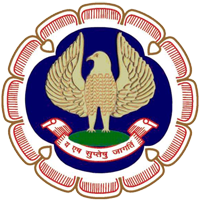



Chartered Accountants were the first accountants to form a professional accounting body, initially established in Britain in 1854. The Edinburgh Society of Accountants (formed 1854), the Glasgow Institute of Accountants and Actuaries (1854) and the Aberdeen Society of Accountants (1867) were each granted a royal charter almost from their inception. The title is an internationally recognised professional designation.
Chartered Accountants work in all fields of business and finance, including audit, taxation, financial and general management. Some are engaged in public practice work, others work in the private sector and some are employed by government bodies.
Chartered Accountants' institutes require members to undertake a minimum level of continuing professional development to stay professionally competitive. They facilitate special interest groups (for instance, entertainment and media, or insolvency and restructuring) which lead in their fields. They provide support to members by offering advisory services, technical helplines and technical libraries. They also offer opportunities for professional networking and career and business development.
In India, the profession of chartered accountancy is regulated by the Institute of Chartered Accountants of India which was established by an act of Parliament under the Chartered Accountants Act, 1949. Prior to 1949, Restricted State Auditors were registered with the respective princely states and British provincial State Governments. However, now, the Restricted State Auditors have become redundant.
ICAI continues to keep the membership alive through yearly payment of prescribed fees. Associate member of the ICAI are entitled to use the prefix 'CA' to their name from 07-08-2009. Further, members who are in full-time practice, and have completed 5 years of practice, can add 'FCA' as a prefix to their names.[9]
As of December 2013, ICAI had more than 200,000 registered members.[10] It has three levels - CPT (Common Proficiency Test), IPCC (Integrated Professional Competence Course) and the CA Final Exam. On clearing the first group of IPCC level, one is required to serve 3 year training period as Article Clerk in an Auditing Firm, or under a senior auditor. After the final exams also there is fifteen days soft skill and communication training.
| Institute of Chartered Accountants of India (ICAI) - | |
|---|---|
 Emblem of ICAI as given by Sri Aurobindo | |
| Motto | Ya Aesh Suptaeshu Jagriti |
| Formation | 1 July 1949; 64 years ago |
| Legal status | Body corporate established under the Chartered Accountants Act, 1949 enacted by the Parliament of India |
| Objective | Regulate the auditing andfinancial accounting profession in India |
| Headquarters | New Delhi, India |
| Coordinates |  28.627815N 77.242135E 28.627815N 77.242135E |
| Region served | India |
| Students | >1175000 |
| Member's designations | A.C.A. and F.C.A. |
| Official languages | English, Hindi |
| President | CA. K. Raghu |
| Vice President | CA. Manoj Fadnis |
| Secretary | Mr. T. Karthikeyan |
| Governing body | Council |
| IFAC member since | 7 October 1977 |
| Regional Offices | New Delhi (NIRC) Mumbai (WIRC) Kolkata (EIRC) Chennai (SIRC) Kanpur (CIRC) |
| Branches | 146 Indian Branches and 23 Overseas Chapters |
| Website | www.icai.org |






























